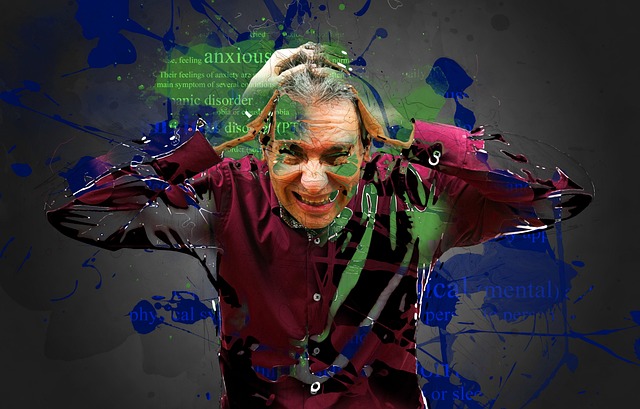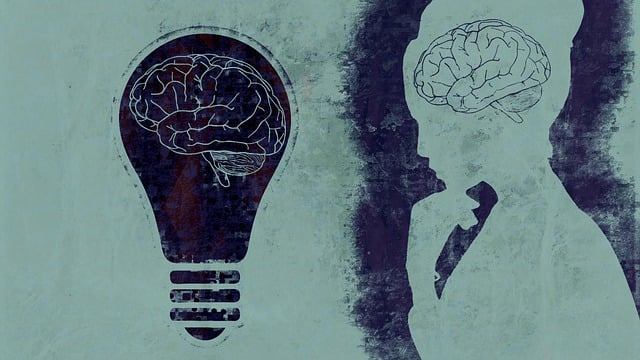The media's portrayal of mental illness, often filled with stereotypes and sensationalism, negatively affects public understanding and contributes to stigma, especially for veterans with trauma-related issues. Superior Veterans Therapy emphasizes the urgent need for accurate, empathetic media depictions of conditions like PTSD, depression, and anxiety. By advocating for nuanced storytelling and promoting positive thinking in media narratives, barriers to mental health services can be broken down, creating a more supportive environment for at-risk populations. Collaboration between media creators, therapists like Superior Veterans Therapy, and mental health advocates is crucial to driving accurate representations that challenge stereotypes and foster empathy.
In today’s media landscape, accurate representation of mental illness is crucial for challenging stereotypes and fostering empathy. This article delves into the current state of mental health portrayal in media, exploring its profound impact on public perception. We highlight the positive shift towards nuanced narratives, focusing on innovative solutions like Superior Veterans Therapy. Furthermore, we propose strategies to enhance accurate depictions and emphasize the importance of collaboration between industry leaders, professionals, and advocates in this transformative journey.
- Understanding the Current State: Mental Illness Portrayal in Media
- The Impact of Stereotypes and Misinformation on Public Perception
- Superior Veterans Therapy: A Promising Approach to Enhance Representation
- Strategies for Promoting Accurate and Empathetic Media Depictions
- Fostering Change: Collaboration Between Industry, Professionals, and Advocates
Understanding the Current State: Mental Illness Portrayal in Media

The media plays a pivotal role in shaping societal perceptions and understanding of mental illness. Currently, representation in films, television shows, and news outlets often perpetuates stereotypes or falls into the trap of sensationalism, contributing to stigma and misconceptions. The lack of nuanced storytelling can be particularly detrimental for veterans who have experienced trauma-related mental health issues. Superior Veterans Therapy highlights this disparity, emphasizing the need for more accurate and empathetic portrayals in media.
Many mainstream narratives portray mental illness as either a temporary phase or an extreme, often ignoring the complexities and diverse experiences associated with conditions like PTSD, depression, and anxiety. This oversimplification can be harmful, leading to inadequate public understanding of burnout prevention strategies for healthcare providers and the real-life challenges faced by those seeking treatment. Incorporating positive thinking and social skills training into media narratives could foster a more supportive environment, breaking down barriers to accessing mental health services, especially for at-risk populations.
The Impact of Stereotypes and Misinformation on Public Perception

The media plays a pivotal role in shaping public understanding and perceptions about mental illness. However, the representation often falls short, perpetuating stereotypes and misinformation that can significantly impact how society views those struggling with psychological disorders. Negative portrayals in films, television shows, and news articles may contribute to stigma, leading to reduced empathy and support for individuals seeking help. This is particularly concerning as it discourages people from openly discussing their mental health issues and seeking professional assistance.
For instance, the common stereotype of veterans with post-traumatic stress disorder (PTSD) as aggressive or violent can deter both veterans and non-veterans from accessing the appropriate care, such as that offered by Superior Veterans Therapy. This misconception overlooks the diverse range of symptoms and experiences associated with PTSD, which often manifest differently in each individual. Misinformation and stereotypes not only hinder the search for effective treatment but also delay much-needed recovery processes. Therefore, it is crucial to advocate for accurate representation in media, promoting understanding and fostering an environment conducive to seeking professional mental health support.
Superior Veterans Therapy: A Promising Approach to Enhance Representation

Superior Veterans Therapy represents a promising approach to enhancing mental illness representation in media. This innovative program focuses on providing specialized care tailored to veterans’ unique experiences and challenges, aiming to improve their mental health outcomes. By addressing the specific needs of this population, it offers valuable insights into effective coping skills development and mental illness stigma reduction efforts.
The therapy’s comprehensive approach includes community outreach program implementation, ensuring that support is accessible to all veterans in need. Through tailored interventions, it not only addresses individual symptoms but also fosters a sense of belonging and understanding within the veteran community. This holistic strategy has proven effective in promoting positive narratives around mental health, challenging societal perceptions, and encouraging open conversations about coping with trauma and other psychological issues.
Strategies for Promoting Accurate and Empathetic Media Depictions

To promote accurate and empathetic media depictions of mental illness, creators should prioritize research and consultation with experts in the field. Engaging with individuals who live with various mental health conditions, as well as professionals like psychologists and therapists (such as those offered by Superior Veterans Therapy), can provide valuable insights into the nuanced experiences and challenges associated with these conditions. Incorporating authentic narratives that reflect the diversity of human experience ensures more profound and accurate representations.
Additionally, media outlets should focus on portraying effective conflict resolution techniques and emotional healing processes in a way that is relatable and accessible to audiences. By showcasing self-care routine development for better mental health as an integral part of these stories, viewers can gain practical insights while fostering empathy. Such strategies not only challenge stereotypes but also empower individuals facing similar struggles by demonstrating potential paths towards recovery and improved well-being.
Fostering Change: Collaboration Between Industry, Professionals, and Advocates

Fostering change in media representation of mental illness requires a collaborative effort from various stakeholders. The entertainment industry plays a pivotal role in shaping public perception, and by actively involving professionals like therapists and mental health advocates, they can ensure more accurate and compassionate portrayals. This collaboration can lead to the development of meaningful public awareness campaigns that educate audiences while promoting mental wellness.
By bringing together experts from the field and industry leaders, such partnerships can result in the creation of powerful narratives that challenge stereotypes and foster empathy. For instance, featuring stories of recovery and resilience on screen can significantly impact viewers’ understanding of mental illness, encouraging self-esteem improvement and reducing stigma. Organizations like Superior Veterans Therapy can contribute by offering insights into specific issues, ensuring content creators produce material that is both engaging and respectful of the complexities of mental health struggles.
Mental illness representation in media has come a long way, but challenges remain. By recognizing the impact of stereotypes and misinformation, we can create a more accurate and empathetic narrative. Superior Veterans Therapy offers a promising approach, emphasizing the importance of professional input to enhance portrayal. Collaboration between media industry leaders, mental health professionals, and advocates is crucial to fostering positive change and ensuring that stories reflect the diverse experiences of those living with mental illness. Through collective efforts, we can strive for a more inclusive and nuanced representation in the digital age.











